- Home >
- Civil Engineering
- > Minor in Mining Engineering
Minor in Mining Engineering
Supplying Critical Minerals
About the Program
 Minor in Mining Engineering
Minor in Mining Engineering
Tennessee State University’s Department of Civil and Architectural Engineering was recently awarded a DOE grant for the development of a mining engineering education curriculum at Tennessee State University to prepare a workforce for critical mineral production. Critical minerals are the building blocks of U.S. economic and national security. As we work to advance toward a clean energy and industrial future, the need for critical minerals increases. Energy and mining industry is dependent upon a qualified workforce trained at the university level in mining engineering programs. The workforce and talent gap are nothing new to those who spend time in the mining and geoscience space, but the increased demand for supply of critical minerals has exacerbated the problem. The number of U.S. accredited mining engineering programs has declined from a high of 25 in 1982 to 13 in 2023. Mining engineering enrollments have fallen by 45% since 2015 alone. This means fewer qualified graduates and a smaller number of available accredited programs.
A Mining Engineering Program at TSU would be the first at an HBCU and the only program in the state. Please see the course outline https://www.tnstate.edu/cae/documents/Mining%20Engineering%20Minor%20Course%20Outline-revised2.pdf and curriculum overview https://www.tnstate.edu/cae/documents/Mining%20Engineering%20Minor%20Course%20Overview-revised.pdf for more information on the program sequence and classes offered.
The Minor in Mining Engineering Kickoff held on April 11, 2025, was sponsored by Rogers Group. Virginia Tech came to speak about their graduate programs. Advisory board members from University of Arizona, Nyrstar, and Wirtgen Group attended virtually. Students from TSU and Nashville State were in attendance.
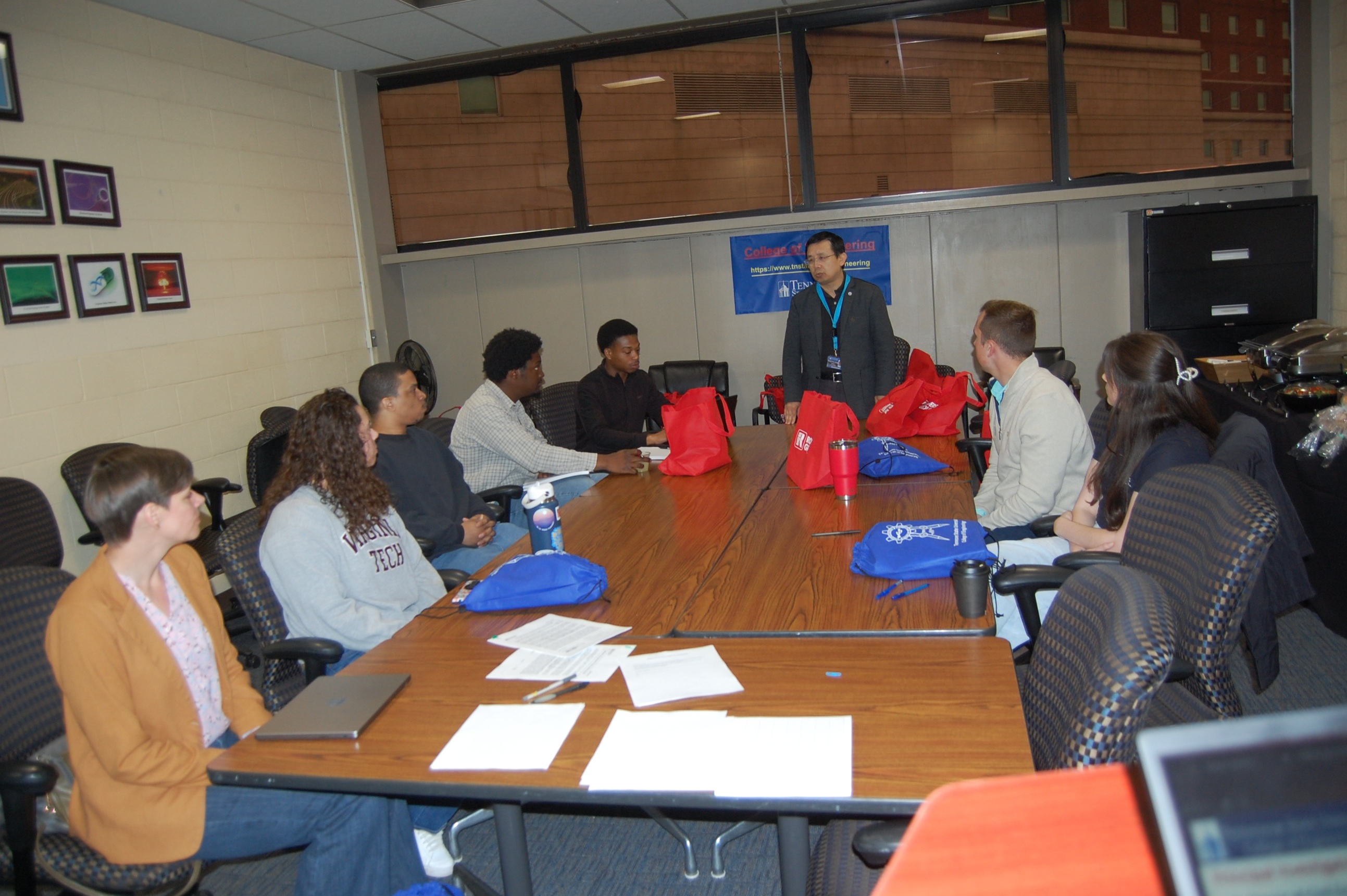



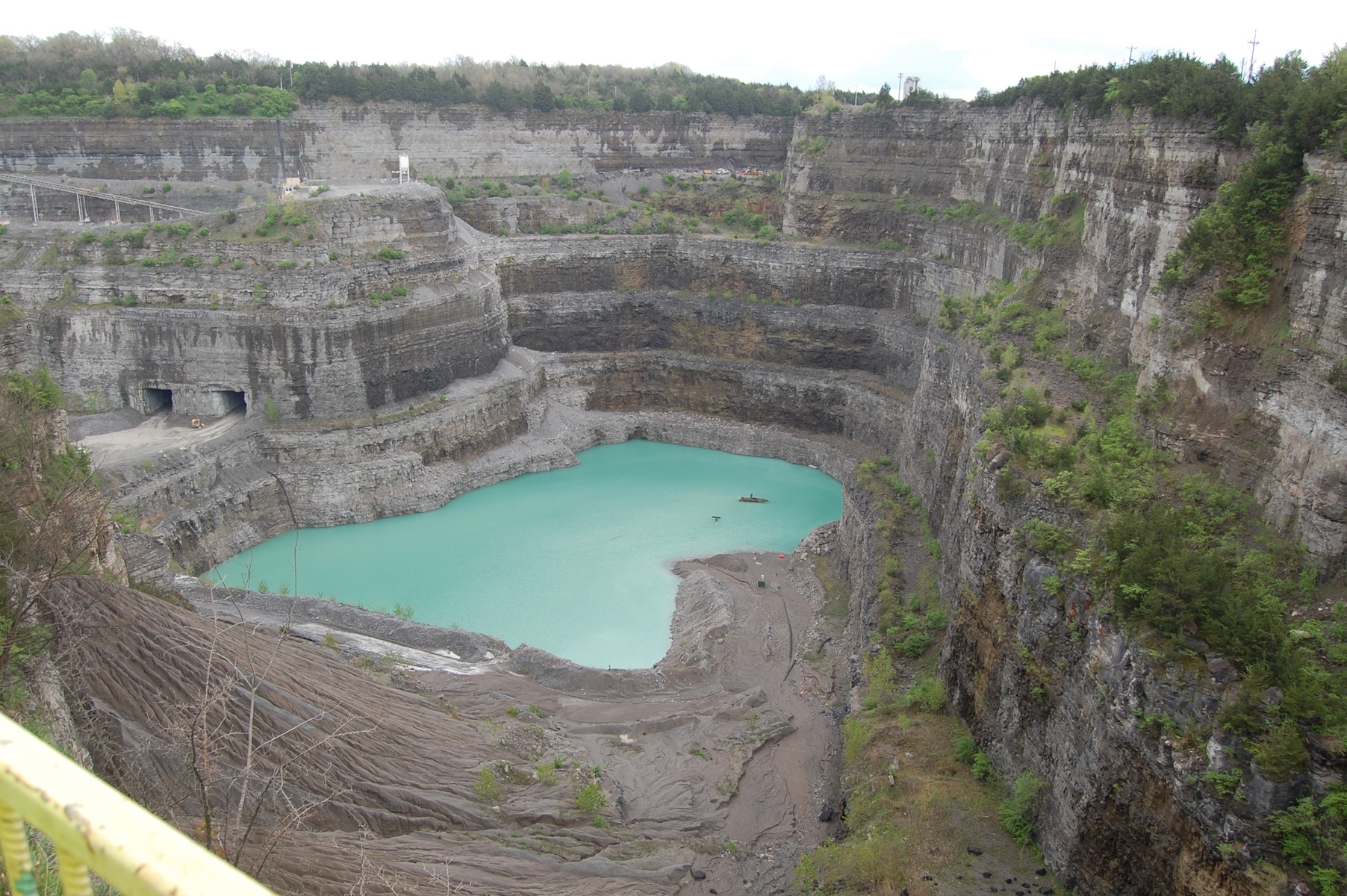
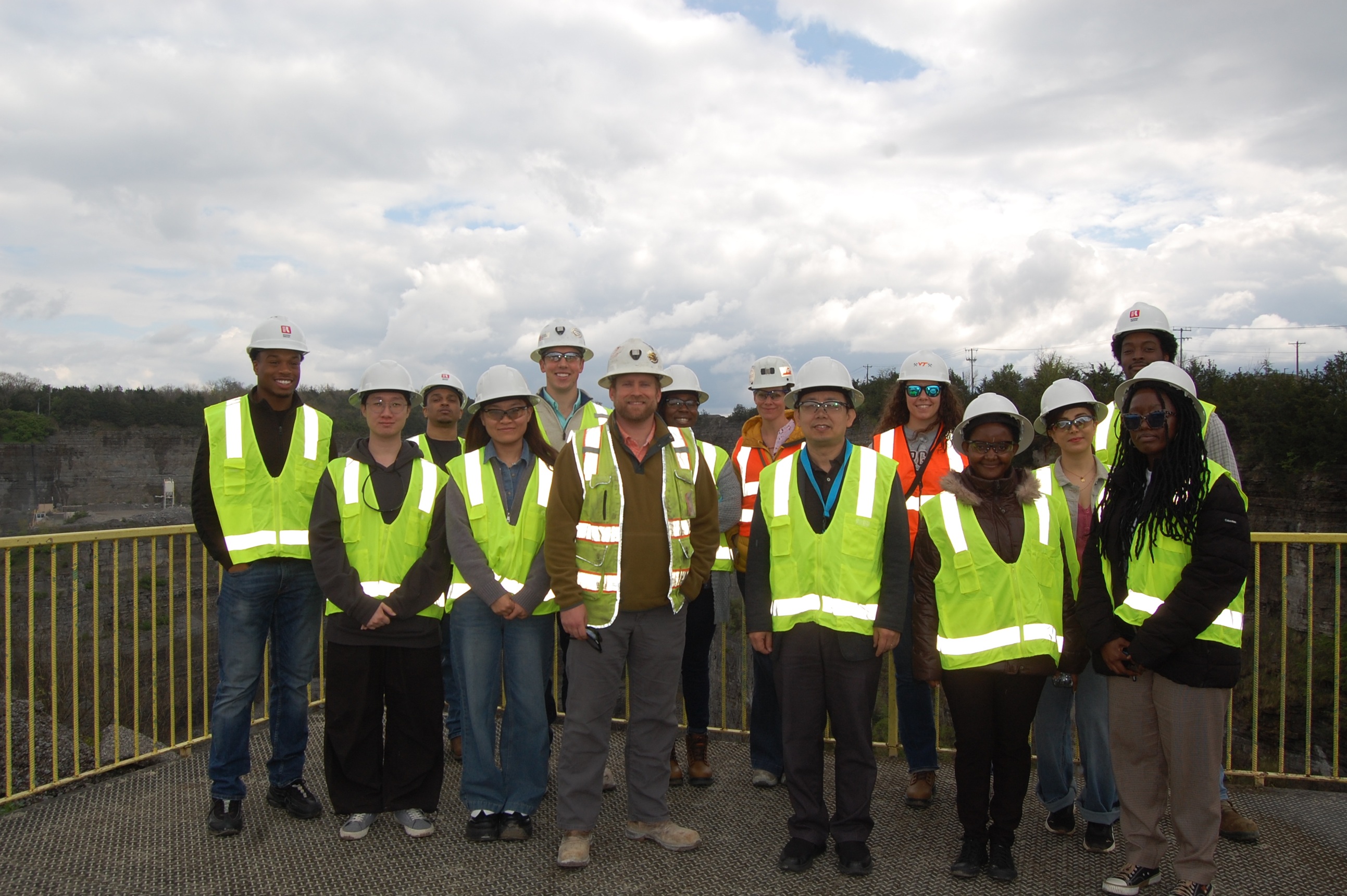

Virginia Tech's Mining and Minerals Engineering Graduate Program hosted TSU on April 23, 2025, in Blacksburg, VA. TSU students and faculty toured labs, participated in hands-on activities, met with faculty and students, and went on a campus tour hosted by VT's Graduate School. The students were welcomed and encouraged to apply for graduate school after successfully completing TSU's Minor in Mining Engineering Program.






State of the Mining Industry in Tennessee
Tennessee's mining industry is rich, encompassing coal, gallium, germanium, limestone, rare earth elements, titanium, uranium, zinc, zirconium, and several others, with significant potential for growth and innovation in sustainable practices. There are currently 290 total mines in TN according to Mine Safety and Health Administration. Two are non-producing coal mines and 288 are metal and nonmetal (MNM) mines. Of the MNM mines, 12 are underground, 253 are surface, 10 are facilities, and 13 are new. There are approximately 12500 mines in the US.
According to The University of Tennessee Knoxville's Economic Report to the Governor of the State of Tennessee, 2025, the natural resources, mining, and construction sector projected to have an increase in average hourly earnings, going from $30.86 to $32.00 in 2025 as indicated by Figure 2.12. The sector is also projected to expand by 3.3%, as indicated by Figure 2.2, thereby adding 5,400 workers to payroll, which is faster than the 1.8% growth expected nationally in 2025.
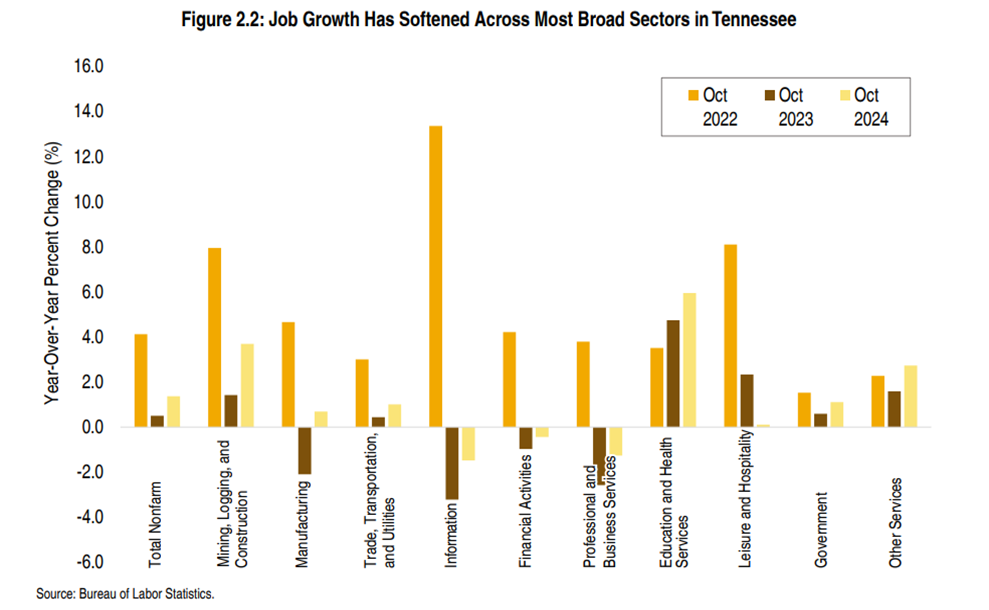
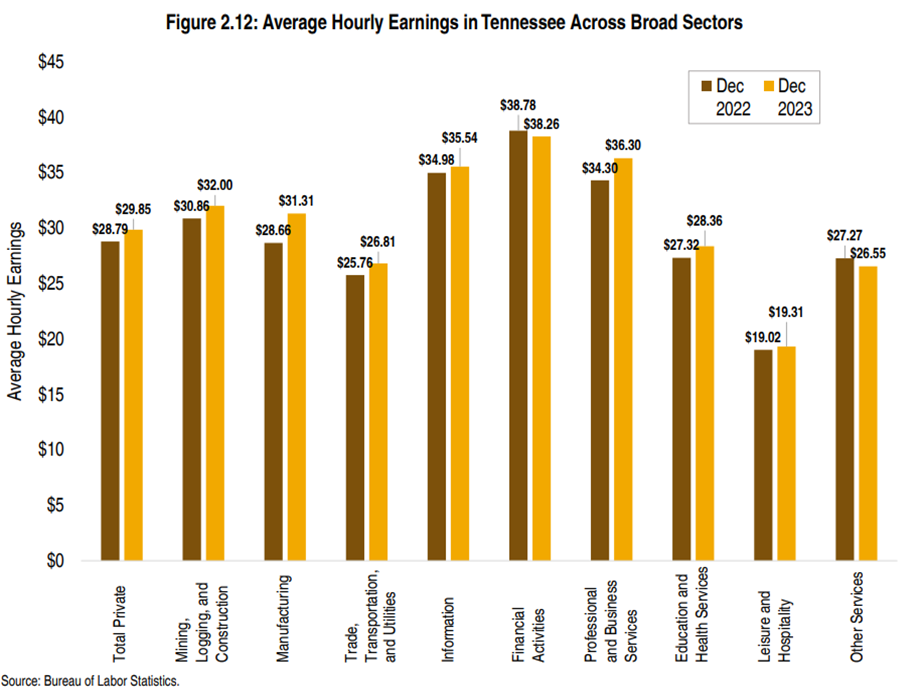
The Mining Schools Act of 2023, originally introduced to the 118th Congress, passed in the Senate in mid-December 2024, the House Natural Resources Committee approved the bill, however, it was not ultimately attached to an end-of-year budget package after the House had to shrink its 1,547 pages down to just 116. If passed, it will require the Department of Energy to establish a grant program to support US mining education.





